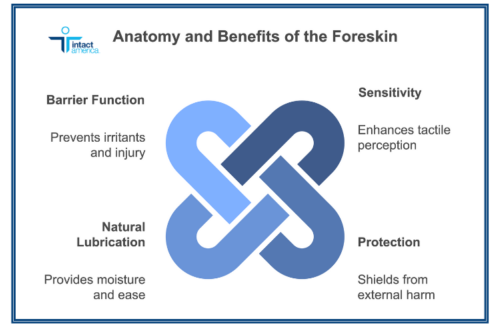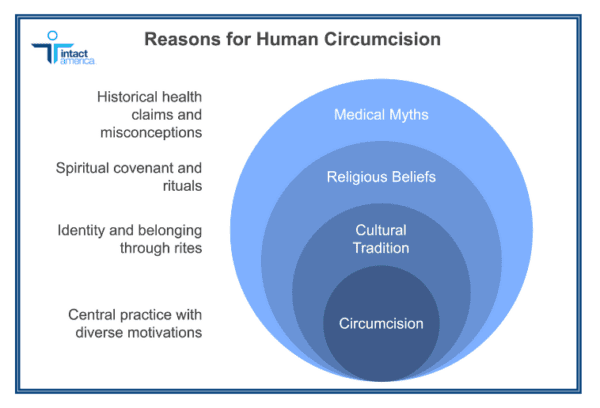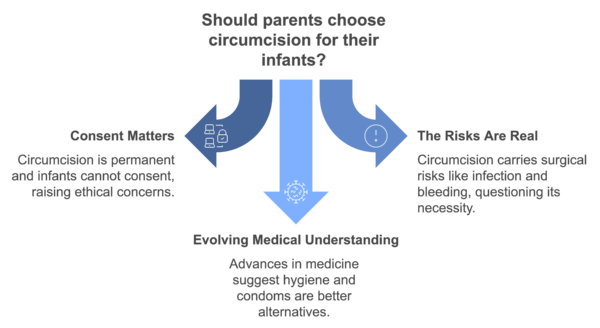
In the animal kingdom, lions roar, peacocks strut, and humans… cut?
While most animals evolve and adapt based on nature’s blueprint, humans have a peculiar tendency to intervene—sometimes in the most personal and irreversible ways.
Circumcision is one such intervention, a surgical removal of the foreskin that has puzzled and polarized societies for centuries. And here’s the kicker: humans are the only species that practices it. No lion king, chimpanzee chief, or dolphin diplomat is lining up for this procedure. So why do we do it, and should we stop?
The Origins of the Cut
Circumcision is not a new trend. Its roots stretch back thousands of years, primarily as a religious and cultural rite. Ancient Egyptians believed it symbolized purity. Some Middle Eastern tribes saw it as a mark of covenant with their gods. Over time, it became a tradition passed down like a family recipe—except this one involves a scalpel.
But here’s the wild part: no other animal species has evolved a biological necessity to lose their foreskin. Evolution is efficient, cutting (pun intended) what’s unnecessary. If the foreskin were an evolutionary mistake, wouldn’t nature have phased it out by now? Instead, it remains a highly specialized structure in mammals, humans included.
The Functionality of the Foreskin

Before diving into why humans are the only species to perform circumcision, it’s worth asking: what’s so bad about foreskin anyway? Biologically speaking, the foreskin is not some random flap of skin. It’s packed with nerve endings, offering sensitivity and protection. It also serves as a natural lubricant and barrier, safeguarding the glans (the head of the penis) from external irritants and injury.
From an evolutionary standpoint, the foreskin is an asset. In other species, it protects against dirt, infections, and injury, particularly in wild environments. Human biology isn’t much different. Yet somewhere along the way, we decided that this natural feature was dispensable.
Animals and Their Natural State
Look around the animal kingdom, and you’ll find every species sporting their natural anatomy. Mammals, in particular, rely on intact genitals for reproduction and survival. The idea of surgically altering them is as bizarre as trimming a tiger’s claws because they’re “too sharp” or cropping an elephant’s ears for convenience.
Even domesticated animals, who live under human care, remain unaltered in this regard. Dogs, cats, and horses all go about their lives without the need for foreskin removal. The thought of circumcising a chimpanzee or a dolphin is almost laughable—and would likely spark an uproar from animal rights activists. Yet when it comes to human babies, it’s normalized.
Why Humans Do It
So, if no other species circumcises, why do humans? The reasons vary, but they generally fall into three categories: cultural, religious, and medical.

1. Cultural Tradition
Many cultures view circumcision as a rite of passage. In these contexts, it’s less about health and more about identity. Families do it because their parents did, and their parents’ parents before them. It’s a tradition wrapped in the idea of belonging.
2. Religious Beliefs
Judaism and Islam have long histories of circumcision as a spiritual practice. For many followers, it’s a covenant with God—a ritual that transcends mere biology. While faith is deeply personal, it raises a philosophical question: should permanent bodily changes be imposed on individuals who cannot consent?
3. Medical Myths
The medicalization of circumcision in the 19th century gave rise to its popularity in the West. Doctors once believed it prevented everything from masturbation to insanity (seriously). Later, it was touted as a way to prevent infections and diseases like HIV.
While there is some evidence of reduced infection rates in specific contexts, organizations like the World Health Organization note that proper hygiene achieves the same results—without surgery.
Why Humans Should Rethink It
Let’s get one thing straight: circumcision is not a life-or-death necessity. The vast majority of intact males go through life without major issues. So why are we subjecting infants—who cannot consent—to an irreversible procedure?

1. Consent Matters
Unlike piercings or tattoos, circumcision is permanent. Infants and young children have no say in the matter, yet the decision affects their bodies forever. In an era where bodily autonomy is increasingly emphasized, this practice feels archaic.
2. The Risks Are Real
Circumcision is surgery, and like any surgery, it carries risks: infection, bleeding, scarring, and even severe complications in rare cases. Is it ethical to expose an infant to these risks for a procedure that is often unnecessary?
3. Evolving Medical Understanding
Medical advancements have debunked many of the myths surrounding circumcision. Hygiene, not surgery, is the key to preventing infections. Condoms, not circumcision, are the gold standard for reducing sexually transmitted infections. The evidence doesn’t justify the routine practice.
A Cut Above: The Future Without Circumcision
As we move toward a future focused on personal choice and evidence-based practices, it’s worth asking: is circumcision really necessary? Imagine a world where every individual decides for themselves whether they want to undergo the procedure—based on informed consent, not cultural or parental pressure.
Some countries, like Sweden and Denmark, are already leading the charge. They’ve questioned the ethics of circumcising infants and proposed age restrictions to ensure individuals can make the decision themselves. It’s a progressive step that honors both tradition and autonomy.
Breaking the Cycle
Human beings are unique in many ways: we build skyscrapers, write symphonies, and send rockets to space. But being the only species to circumcise? That’s a distinction we might want to rethink. The foreskin is not a defect; it’s a feature—one that nature has carefully crafted over millennia.
It’s time to cut through the cultural fog and ask the tough questions. Is circumcision about health, or is it about habit? Is it about protection, or is it about conformity? Above all, is it ethical to make such a life-altering decision for someone who can’t say yes—or no?
The animal kingdom thrives without surgical alterations to its anatomy. Maybe it’s time for humans to take a cue from nature and leave perfection as it is: untouched. After all, if it’s not broken, why fix it?
Join us in the fight for bodily autonomy—because every boy deserves the right to his own body.









No Comments